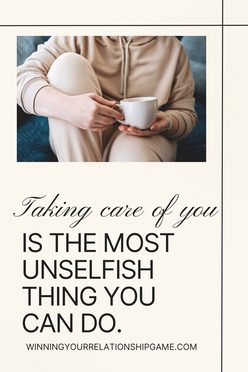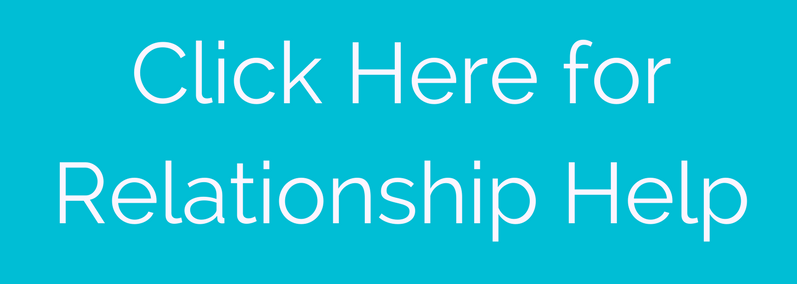 What's the one trick to handling everything better? This answer may surprise you. If you’re committed to change, you have to maintain your own personal resources. Your personal resources are what you possess within you which allows you to manage life. To make behavior changes, you have to draw on these resources. If you can visualize a container you carry with you containing your personal resources. They’re always there and available to draw on. Because you draw on them, they have to be replenished regularly. Remember, your life performance depends on these resources. At times when they’re low, you won’t handle things as well as you might when they’re adequate. Your best chance to perform well is keeping your personal resources at maximum capacity. To manage them well, you have to be aware of where your capacity level is, know how to replenish them and know what drains them. To illustrate: Mom leaves work, picks up the kids, and has to get home and get dinner on the table. Scenario #1-Mom had a crappy day. There was an accident on the way home. When she walks in, she realizes she’s forgotten to take something out to cook for dinner. She’s tired, upset, running late and trying to decide between takeout pizza and grilled cheese sandwiches. One of the children comes into the kitchen and says, “Mom, come see what I made at school!” Mom responds in a frustrated tone, “Not now, I’m busy. Go get started on your homework.” Scenario #2-Mom had a great day at work. She got off early and picks up the kids. Walking in the door at home, she smells the lovely scent of pot roast. She remembers putting it in the crock pot this morning. Now all she has to do is heat a veggie and dinner will be served. One of the children comes into the kitchen and says, “Mom, come see what I made at school!” Mom responds with a smile, “Sure! Do you need some help with your homework too?” The difference in those two scenarios is the level of mom’s personal resources. In scenario #1, she is depleted. She’s scraping the bottom of her resource container. In scenario #2, her container is overflowing. When your container is overflowing, you can pour yourself out generously on those around you. Your first challenge is greater self-awareness. Take a moment to look back over your week. Identify a time when you reacted poorly in a situation. Were your personal resources low? Do you know what drained them? Now you know, you can’t unknow it. So being aware of your level of personal resources, you have to take charge of them. How can you keep them as high as possible? You must learn to keep balance between doing things for yourself and doing things for others. If you have a program of excellent self-care, you’ll keep your resources high. When I talk about self care, I always get this question: “Isn’t that selfish?” Taking good care of your personal resources is the most unselfish thing you can do. When you are full, you can’t help but spill over on everyone else. You’ve encountered these people. Someone with good levels of personal resources is happy and joyful, open and giving. Someone whose resources are depleted is resentful and bitter, doing things grudgingly. So what fills you up? Keeping your personal resources at a high level requires awareness, replenishment and eliminating the drains to your resources. You need your personal resources to fuel making behavior changes and sticking to a plan. It’s hard to resist impulsive or habitual behavior when resources are low. In my work with addictions, there’s an acronym to stress times of high risk for relapse potential. It’s helpful to keep people on track with behavior change too. The acronym is HALT-Hungry, Angry, Lonely and Tired. I like to add Rushing, Distracted or in Pain. Any of these deplete your personal resources. In addition, any unresolved issues can be a hole in your bucket. Childhood trauma or other huge stressors will continuously drain your container. Once you know what’s draining it, you have to take steps to eliminate the drains as quickly as possible. To be effective in maintaining behavior changes and dealing effectively with others, you must be responsible to maintain your own personal resources. Now let’s twist this up a bit: Your partner has a container holding their personal resources. Their container has to be replenished regularly. Their life performance depends on these resources. At times when they’re low, your partner won’t handle things as well as they might otherwise. Go back to the mom story. The child in the story behaved the same in both scenarios. The child was in no way responsible for mom’s response. The only difference was the level of mom’s personal resources. Mom’s response had absolutely nothing to do with the child. Look back over your week. Was there a time your partner acted poorly? If you were involved, did you take it personally? Is it possible their personal resources were low? What was draining them? What fills your partner up? What drains your partner’s container? What holes does your partner have in their container? If you began to have empathy for your partner how much difference would it make in your feeling hurt? Being attentive to your own personal resources will help support your good in the world. Being aware of low resource times can help you and your partner avoid taking reactions personally. Recognizing times of high risk for impulsivity can further reduce misunderstandings. The recap:
Practice Time: There’s a worksheet for this post here. Take the time to learn and understand more about yourself and your partner. It’ll be worth extra points if you do! Contact me if you have any questions! I’d love to hear from you. Allison
Comments
|
Helping You
|



 RSS Feed
RSS Feed

